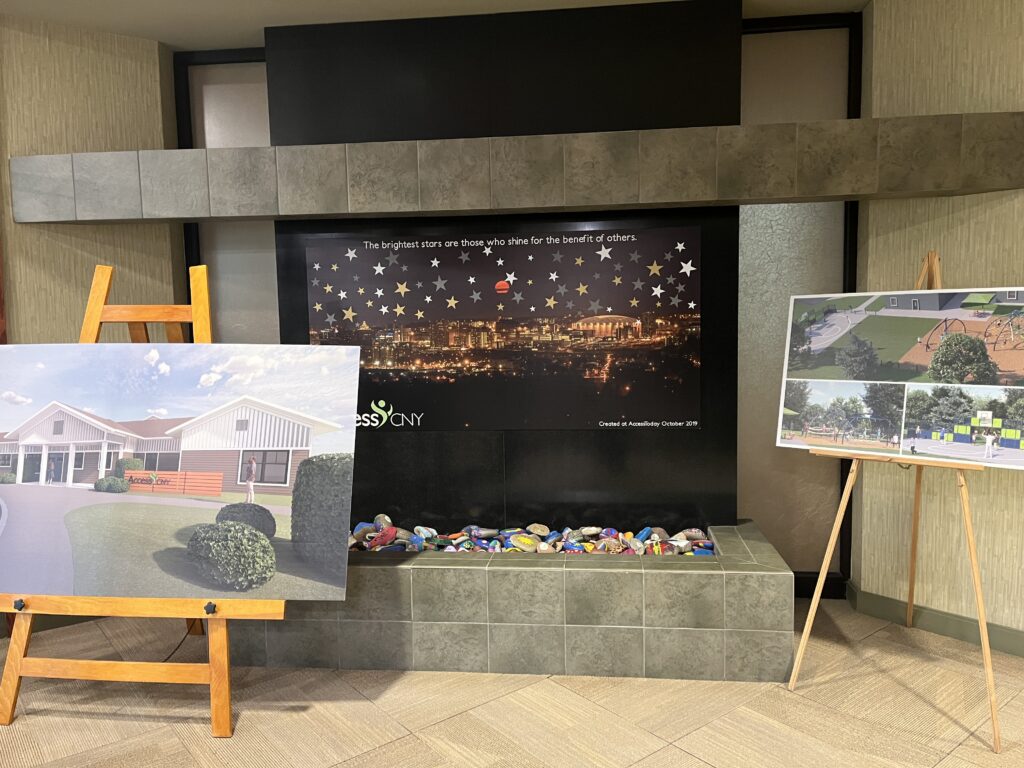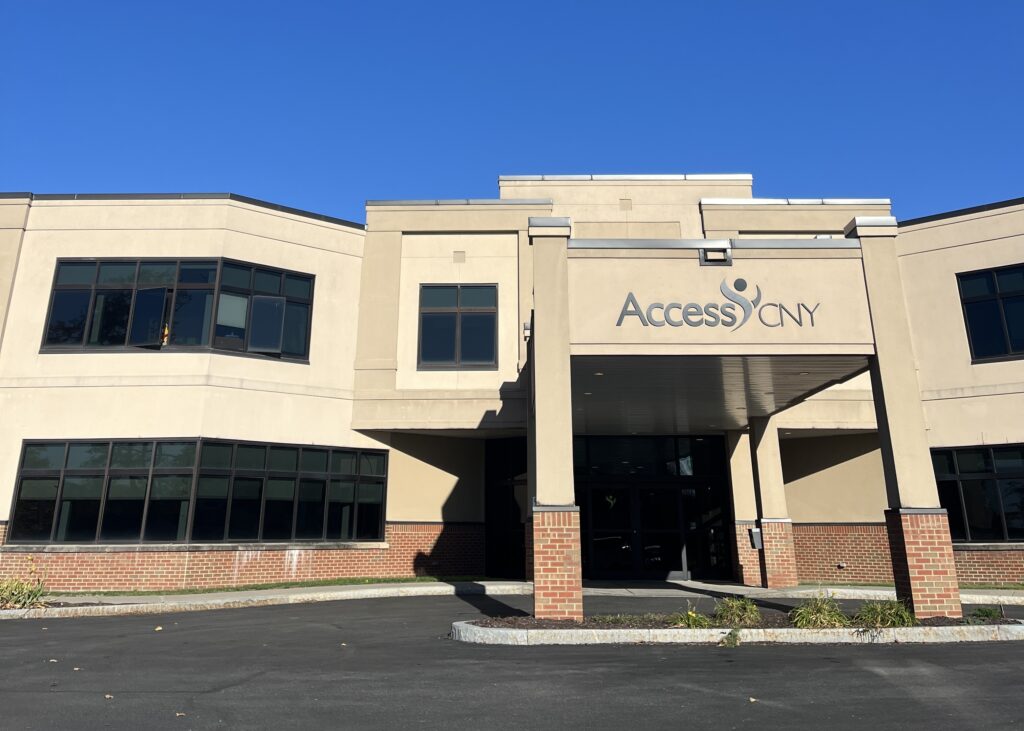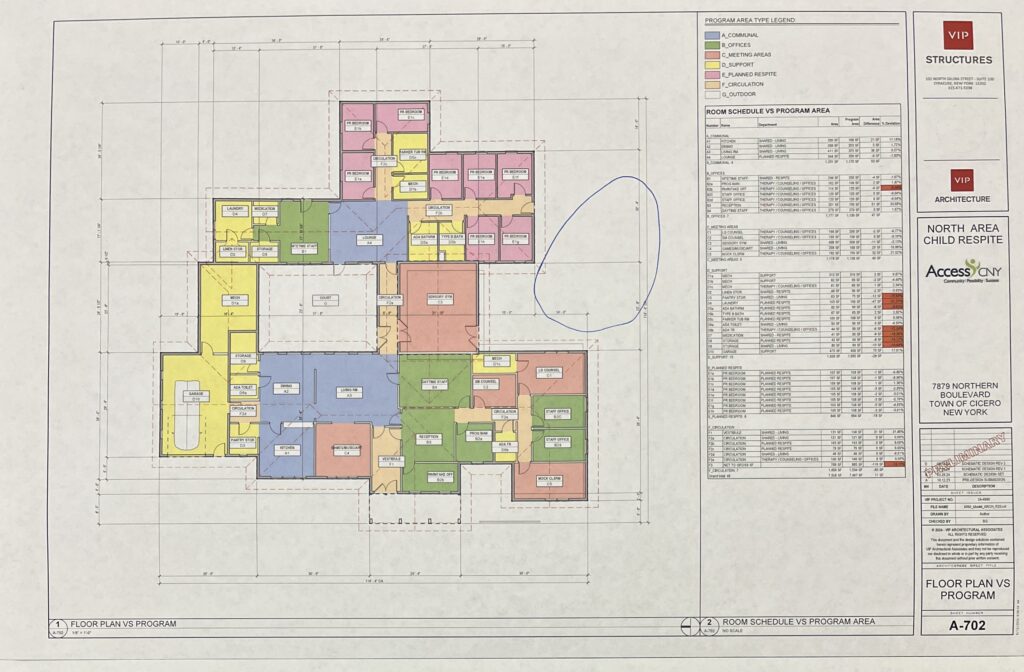
SYRACUSE, N.Y. (NCC News) – Central New York is facing an unprecedented mental health crisis, with children struggling with mental health at a higher rate across the region. Onondaga County alone has a suicide rate that’s 30% higher than the rest of the state, and 15% of New Yorkers report more than 14 poor mental health days per month, according to data provided by AccessCNY, a mental health agency in Syracuse.
“The mental health of kids in our community has reached a crisis point,” said Paul Joslyn, Executive Director of AccessCNY. “Twenty percent of kids in a mental health crisis will never receive treatment – we need to and have to do better.”
State Funding Boosts Youth Mental Health Resources
To combat the rising mental health concerns of youth ages 11-17 both in Onondaga County and across the state, Governor Kathy Hochul recently announced nearly $90 million in state funding to enhance youth mental health services across New York.
This investment will support programs like AccessCNY in Syracuse, which is one of six mental health service providers selected to implement the Critical Time Transition Program (CTTP) – a new mental health program for the state, managed by New York’s Office of Mental Health.
“[CTTP] is really two programs in one,” said Matt Seubert, Associate Executive Director of Development, Communications, and Advocacy at AccessCNY. “It is first an intensive case management program, and secondarily includes a transitional residential setting program serving kids from ages 11-17.”

Critical Time Transition Program: A Two-Part Approach
As a dual-focused program, the first step in the CTTP involves AccessCNY’s case managers to be embedded in the hospital, working with children who have been hospitalized due to mental health, and their families, and hospital caregivers.
The goal is to help transition each child out of the hospital’s inpatient setting back into the community, whether this be their home or the second aspect of the CTTP, the transitional residence.
“It’s really focused on helping kids at those key times in their lives where their mental health may deteriorate or may fall into crisis,” said Seubert. “So the goal of the CTTP program is really to serve kids who are either stuck in the hospital or in an emergency room and give them a community-based alternative to work on their recovery, as opposed to in a hospital setting.”
The Children’s Mental Health Center
AccessCNY broke ground on the transitional residence, called the Children’s Mental Health Center, a few weeks ago, an investment totaling $5.1 million and located in Cicero, largely funded by Gov. Hochul’s recent state grant.
The Children’s Mental Health Center, AccessCNY plans to begin construction of the transitional residence facility in early 2025 and hopes to be open by late 2025 to early 2026, will have features including:
- A 7,500-square-foot residential setting
- Eight individual bedrooms
- A shared kitchen, dining, living, and activity areas
- An indoor sensory gym
- Multiple counseling spaces
- An educational learning space
- A playground and basketball court
- An enclosed courtyard
Many of these spaces, including the sensory gym and music and game rooms, are designed for children on the Autism spectrum, a group that AccessCNY works closely with, especially as people with disabilities are four times more likely to receive a mental health diagnosis, according to Access CNY’s data.

From Treatment to Community Reintegration
Each of the eight bedrooms in the facility will be available to a child for up to 120 days, with some using the full transitional period and some using less. Through the CTTP’s intensive case management aspect, the goal is to help support each kid’s transition out of the hospital and into the transitional residence if needed and then to make sure that families and children are connected to the support services that will allow them to be successful once back in the community.
Further services and eligibility include:
- 24/7 staffing, with social workers, behavior specialists, peer advocates, and nurses
- Provide intensive case management and connect kids and families with comprehensive services
- Connect kids to their school districts to continue their education
- Work with children from Onondaga, Oswego, Cayuga, Cortland, and Madison counties
“Our hope is that kids aren't with us that long, because they're coming from Upstate [Hospital], the kids and their families are getting some training and support,” said Seubert. “We're going to kind of meld that right into what we’re doing – so kids will stay as long as they need.”
VIDEO TRANSCRIPT: Onondaga County Confronts Youth Mental Health Crisis with New State Initiative
Matt Seubert, Associate Executive Director of Development, Communications, and Advocacy at AccessCNY:
Here in Onondaga County, one of the biggest struggles is services for those with a mental health diagnosis. This community is really struggling with a suicide rate that's 30% higher than the rest of the state, and one of the biggest issues is there just aren't enough providers and aren't enough services in central New York for those struggling with their mental health.
So while we're excited to be building a new building, this new transitional residence, what we're even more excited about is that we're investing in 25 new mental health staff who can provide support and services to families and kids who are struggling with their mental health.
So the children's mental health center that's part of CTTP will have this residential location, which will include eight bedrooms. So here in pink, those are all individual bedrooms for the kids who will come stay with us. The more purplish areas are common areas, so the kids will have a lounge in the back of the building associated with their individual bedrooms. Then towards the front of the building, we'll have a kitchen, dining room, living area, and then the sort of salmon-colored spaces are activity areas. We have a large sensory gym. We'll be serving a lot of kids who may be around the autism spectrum. So sensory outlets here, and we have music and games room here. This part of the building is some more common spaces, some counseling areas, a mock classroom to meet the educational needs of the kids, and we have office spaces for our staff as well.
